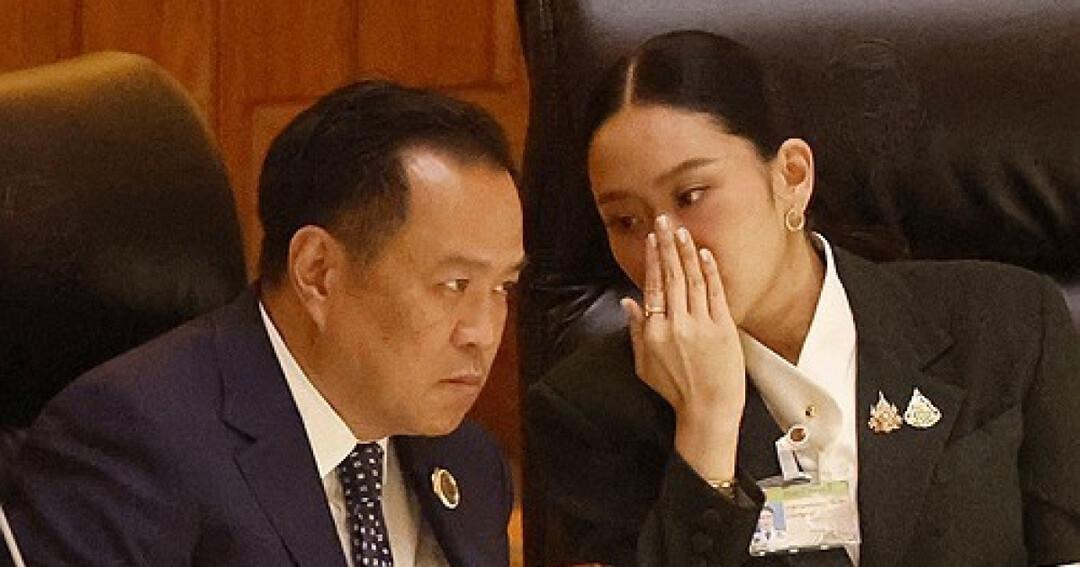
BANGKOK, Thailand – Thailand’s political landscape has been thrown into disarray following the dramatic dismissal of Prime Minister Paetongtarn Shinawatra by the Constitutional Court. The abrupt end to her year-long tenure has triggered a frantic scramble among political parties to form a new coalition government, with former Deputy Prime Minister Anutin Charnvirakul emerging as a leading contender for the top job.
The court’s unanimous ruling on Friday cited Paetongtarn’s failure to uphold constitutional ethical standards, specifically referencing a leaked phone call with Cambodian Senate President Hun Sen. In the call, she referred to Hun Sen as "uncle" and allegedly criticized her own country's military commander in charge of border affairs, sparking a firestorm of controversy and leading to a petition for her removal by conservative senators. The verdict marks the third time in two decades that a prime minister from the Shinawatra family has been ousted by a court decision, underscoring the deep-seated political divisions that continue to plague Thailand.
Anutin Charnvirakul, leader of the Bhumjaithai Party, which was the second-largest party in Paetongtarn's coalition, now finds himself in a pivotal position. His party broke away from the ruling coalition in the wake of the leaked phone call, leaving the Pheu Thai Party, the largest in the coalition, with a precarious seven-seat majority in the House of Representatives. Anutin, a businessman-turned-politician, has wasted no time in capitalizing on this political vacuum. He has declared his readiness to become the next prime minister and has already secured a crucial political agreement with the Palang Pracharath Party (PPRP), the largest party in the House.
The Bhumjaithai Party has made a series of bold promises to secure the PPRP's support. Anutin has pledged to dissolve parliament within four months if he takes office, clearing the way for new elections. This move is seen as a direct response to the PPRP’s demand for a constitutional referendum, a key condition for their support. Furthermore, Anutin has committed to resolving the long-standing border dispute with Cambodia, a sensitive issue that was at the heart of the scandal that toppled Paetongtarn. This pragmatic approach has given him a significant advantage in the current power struggle.
While the Pheu Thai Party still claims it has enough support to maintain power, the recent defections and the narrowness of their majority make their position highly vulnerable. In a sign of their desperation, Pheu Thai officials have also indicated their willingness to accept the PPRP’s demands, including constitutional amendments, to avoid being pushed out of power.
The race for the prime minister's seat is crowded. In addition to Anutin, the pool of eligible candidates—limited to those nominated by their parties in the 2023 general election—includes Pheu Thai's Chaikasem Nitisiri, former Justice Minister, as well as several other prominent figures from the previous political era, such as former Prime Minister Prayut Chan-o-cha.
The parliamentary vote to select the new prime minister is expected to take place between September 3 and 5. Under the Thai constitution, a prime ministerial candidate must secure the support of a simple majority of all members of the House of Representatives, which consists of 500 members.
Political analysts warn that the ongoing instability could lead to a policy paralysis at a critical time for the Thai economy, which is grappling with significant challenges, including trade tensions with the United States and high levels of household debt. Napon Jatusripitak of the ISEAS-Yusof Ishak Institute in Singapore noted that "the court’s decision to remove Paetongtarn is yet another instance of unelected judges overturning the will of the people," adding that Thailand now faces a "political deadlock and a leadership vacuum" amidst these economic headwinds. This sentiment reflects a broader frustration among the Thai public with a political system that frequently sees democratically elected leaders removed by judicial or military intervention.
As the political maneuvering intensifies, the outcome of the upcoming vote remains highly uncertain. The ability of any new coalition to secure a strong parliamentary majority and govern effectively will be a key test of Thailand's democratic resilience. The potential for a short-lived government and an early general election looms large, promising a period of continued uncertainty for the kingdom.
[Copyright (c) Global Economic Times. All Rights Reserved.]






























